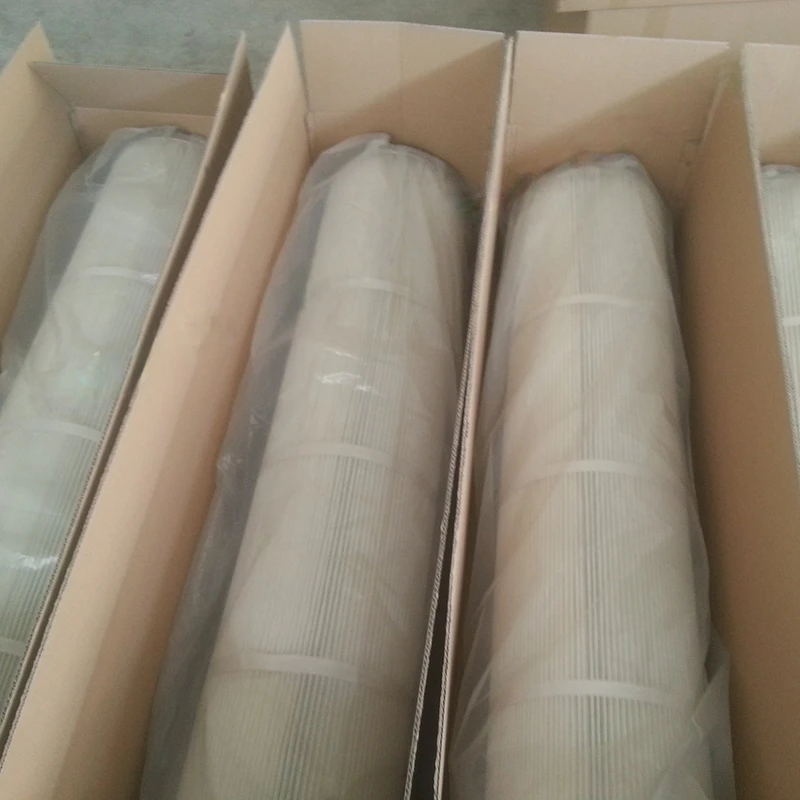 Tel:
+8615930870079
Tel:
+8615930870079
sie . 09, 2024 23:15 Back to list
Efficient Dust Collector Pleated Filters for Enhanced Air Quality and Filtration Performance
Understanding Dust Collector Pleated Filters Efficiency and Applications
In industrial settings, dust collection systems are essential for maintaining air quality, protecting machinery, and ensuring worker safety. One of the most effective components of these systems is the pleated filter. Pleated filters have become increasingly popular due to their enhanced surface area and efficiency in capturing particulate matter, making them a vital component in dust collector systems.
What is a Pleated Filter?
A pleated filter is designed with multiple folds, which significantly increases its surface area compared to traditional flat filters. This design allows for more dust and particulates to be captured without a proportional increase in airflow resistance. The pleats create a larger filtering surface while occupying less physical space, making them an optimal choice for various industrial applications.
Advantages of Pleated Filters
1. Increased Surface Area The primary advantage of pleated filters is their geometry. The pleats create additional surface area for dust capture, which allows for longer filter life and reduced frequency of replacement. This design enhances the efficiency of the dust collector by allowing it to operate with greater effectiveness.
2. Reduced Airflow Resistance Because of their unique design, pleated filters maintain efficient airflow, even as they become laden with dust. This results in lower energy costs, as dust collectors require less power to operate under optimal conditions.
3. Higher Filtration Efficiency Pleated filters can capture smaller particles, often down to 0.3 microns, which is crucial in many applications, including pharmaceuticals, food processing, and electronics manufacturing. This high filtration efficiency ensures that the air quality remains safe and compliant with regulatory standards.
4. Versatility Pleated filters are available in various materials, including synthetic, fiberglass, and cellulose. This versatility allows manufacturers to choose filters based on the specific dust types they are dealing with, making pleated filters suitable for diverse industries.
dust collector pleated filter

Applications of Pleated Filters
Pleated filters are used in a wide range of industries, thanks to their efficiency and effectiveness
. Some common applications include- Manufacturing Industrial manufacturing processes generate significant amounts of dust and particulate matter. Pleated filters effectively capture this dust, preventing it from contaminating products and machinery.
- Food and Beverage In the food industry, maintaining a clean environment is paramount. Pleated filters help ensure that air quality meets safety standards by trapping airborne contaminants during processing.
- Pharmaceuticals In pharmaceutical manufacturing, the need for clean rooms is critical. Pleated filters are essential for maintaining sterile conditions, as they prevent particles from interfering with sensitive operations.
- Construction and Demolition These activities often produce hazardous dust, including silica and asbestos. The use of pleated filters in dust collectors helps minimize health risks for workers and complies with environmental regulations.
Conclusion
Pleated filters are an integral part of modern dust collection systems, designed to enhance airflow efficiency and filtration effectiveness. Their unique design provides numerous advantages, including increased surface area for dust accumulation, reduced airflow resistance, and high filtration efficiency. With applications spanning across various industries, pleated filters play a crucial role in protecting both equipment and health. As industries continue to prioritize environmental health and safety, the importance of effective dust collection solutions like pleated filters will only continue to grow. Investing in high-quality pleated filters can yield long-term benefits in operational efficiency, cost savings, and compliance with health regulations.
-
Types and Applications of Air Filtration CartridgesNewsJul.28,2025
-
The Role of Gas Turbine FiltersNewsJul.28,2025
-
Mastering Air Filter Cartridge UseNewsJul.28,2025
-
Advanced Turbine Filters for Modern Gas TurbinesNewsJul.28,2025
-
Cellulose Air Filter Cartridge Advantages in Dust FiltrationNewsJul.28,2025
-
Cellulose Filters for Air Particle ReductionNewsJul.28,2025

 Email:
Email:





